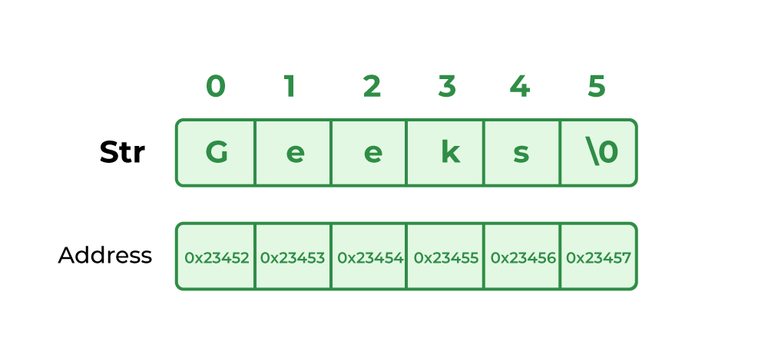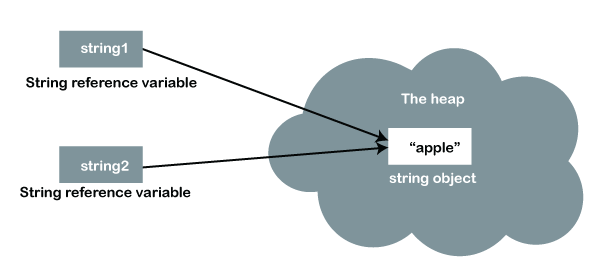Unalterable Strings: A Trick Part in Ensuring Data Uniformity and Integrity
In the world of data management, the value of unalterable strings can not be overstated. These constant series of characters play a critical function in upholding the stability and accuracy of information within systems. By keeping a state of immutability, data consistency is ensured, cultivating a structure of reliability whereupon vital procedures depend. The principle of unalterable strings goes beyond plain technicality; it is a cornerstone in the complicated internet of data administration. As we explore the benefits, application techniques, and functional applications of unalterable strings, a clearer photo arises of their essential nature in safeguarding the electronic landscape.
The Idea of Immutable Strings
Unalterable strings, an essential principle in programs, refer to strings that can not be modified as soon as they are produced. Fundamentally, as soon as a string value is assigned, any procedure that appears to modify the string really creates a new string. This immutability makes sure data uniformity and reliability in applications, as it protects against unexpected modifications to the original data.
Advantages in Data Uniformity

Data consistency is essential in numerous elements of software program growth, including data source monitoring, multi-threaded environments, and dispersed systems (Why are strings immutable in Java?). Unalterable strings contribute dramatically to attaining this uniformity by protecting against information corruption because of simultaneous gain access to. In scenarios where numerous processes or threads engage with the exact same information all at once, immutable strings act as a protect versus race conditions and synchronization concerns
In addition, the immutability of strings streamlines debugging and screening processes. With unalterable strings, programmers can rely on that when a string is established, it will remain unchanged, making it less complicated to map the resource of errors and ensuring that examination situations create consistent outcomes. This dependability in data taking care of eventually results in much more stable and durable applications.

Implementing Unalterable Strings
Guaranteeing the immutability of strings calls for a thoughtful technique to their application in software program advancement. One crucial approach is to design string courses in a method that prevents modifications once a string things is produced. By making strings immutable, developers can improve information uniformity and integrity in their applications.
To carry out unalterable strings effectively, designers need to prefer creating new string items instead of modifying existing ones. This method ensures that once a string is assigned a value, it can not be changed. Additionally, any procedure that shows up to customize the string ought to develop a new string with the wanted adjustments rather of modifying the initial.
In addition, utilizing immutable strings can streamline concurrency management in here multi-threaded environments. Given that unalterable strings can not be changed after development, they can be securely shared amongst several strings without the danger of information corruption.
Function in Dependability Guarantee
In software program advancement, the application of immutable strings plays an essential duty in guaranteeing the dependability of data operations. Immutable strings, once created, can not be customized, making certain that the information they stand for stays consistent throughout the application's execution. This immutability residential or commercial property gives a degree of guarantee that the data being refined will certainly not be inadvertently altered, resulting in unanticipated end results or mistakes in the system.
By including immutable strings into software application design, designers can improve the dependability of their applications by lessening the dangers related to mutable information - Why are strings immutable in Java?. Immutable strings aid in avoiding data corruption or unintended adjustments, which can be specifically important when dealing with sensitive info or when data integrity is paramount
Furthermore, using immutable strings simplifies concurrent processing, as several strings can securely gain access to and share string data without the danger of one thread modifying the content while another reads it. This element contributes considerably to the total dependability of the software application system, making certain foreseeable and regular habits this contact form in information handling operations.
Applications and System Combination
The seamless combination of immutable strings into numerous applications and systems is pivotal for making sure robust information uniformity and dependability throughout varied technological atmospheres - Why are strings immutable in Java?. Unalterable strings play a critical function in boosting the honesty of data exchanges and communications within complex software program environments. By integrating unalterable strings into applications, designers can minimize the risks connected with information meddling, unapproved modifications, and unintended changes, therefore strengthening the general safety and security pose of the system
In the context of system assimilation, unalterable strings serve as a foundational aspect for establishing safe and secure interaction channels and assisting in seamless data transfers in between various elements. Their unalterable nature makes certain that information transmitted between systems continues to be verifiable and the same, decreasing the likelihood of inconsistencies or errors that might endanger the stability of the whole system. Additionally, immutable strings can improve interoperability between diverse systems by supplying a standard layout for data representation, making it possible for more reliable information handling and exchange methods throughout interconnected platforms. By adopting immutable strings in applications and system assimilation processes, organizations can fortify their data framework and support the dependability and consistency of their details assets.
Conclusion
To conclude, unalterable strings play a crucial duty in preserving data uniformity and integrity in different applications and system combinations. By making certain that strings can not be altered when created, the honesty of information is preserved, reducing the threat of incongruities and mistakes. Executing immutable strings can considerably boost the integrity of systems, eventually resulting in more dependable and exact data processing.
